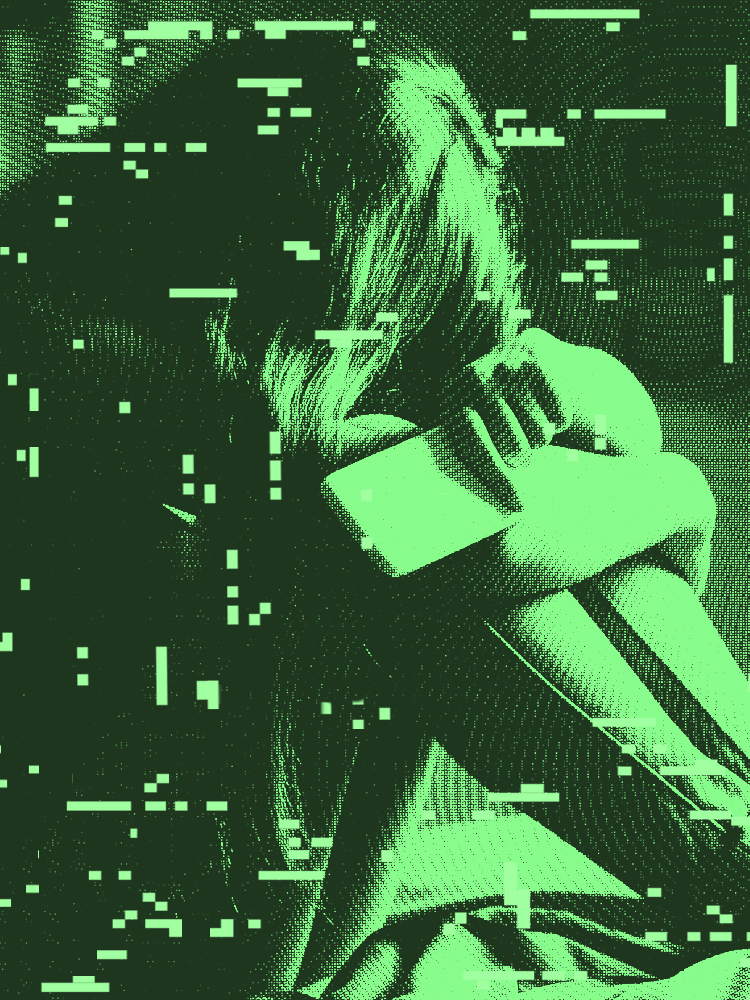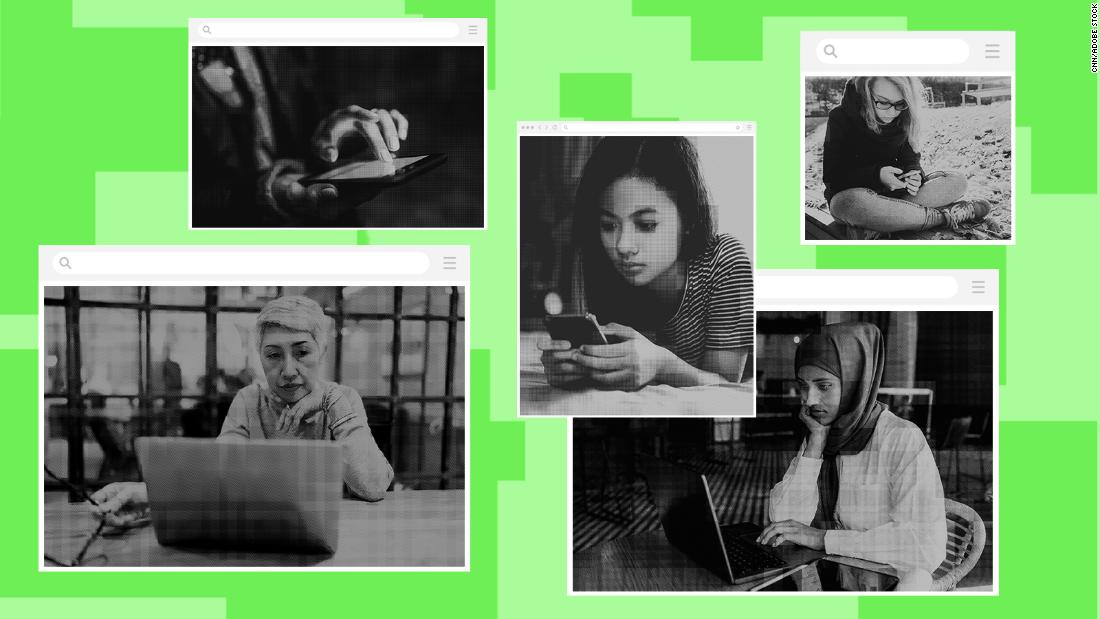
What is 'revenge porn' and are there laws to protect you? Here’s what you need to know
By Sen Nguyen for CNN
This story is part of ‘Systems Error’, a series by CNN As Equals, investigating how your gender shapes your life online. For information about how CNN As Equals is funded and more, check out our FAQs.
In 2012, a male classmate asked then 14-year-old Leah Juliett to share naked pictures. They had a crush on the boy and sent him four images but declined to send more when the boy asked for pictures of their private parts. Juliett later found out their pictures had been circulated at school and on a website known for distributing sexual images without a person’s consent.?
‘’Having my images online and having no control really made me hyper control everything else in my life in an attempt to take that control back,’’ Juliett, now 26, told CNN, adding that it severely affected their mental health.?
But Juliett took action. The nonbinary activist founded March Against Revenge Porn, an international cyber civil rights organization based in the US which led multiple marches and campaigns for legislation against this form of image-based abuse. The organization is currently undergoing a rebrand.??
“Being able to transition from victim to advocate to activist and now lived experience expert has given me opportunities to make tangible change on this issue,” said Juliett. ‘’I’ll never regret talking about my story a million times, and so publicly, because it really did save my life and helped me to facilitate change for other people.”

Activist Leah Juliett had their images circulated at school and on a website known for distributing sexual images without a person’s consent. Vivien Killilea/GLAAD/Getty Images
What is 'revenge porn'?
“Revenge porn” is the popular term used for sexually explicit imagery that was stolen, shared, or otherwise distributed without the person’s consent.?
The UK government defines the term as the sharing of images in this way with the intent to humiliate or cause distress, typically involving publishing or posting images on social media, in private group chats or online.??
Along with their images, a victim’s personal information such as names, addresses and links to their social media profiles are sometimes shared.??
The term “revenge porn”? is considered misleading by many academics? and activists who argue that many perpetrators are not motivated by retaliation and that the term implies victim-blaming. They state that the correct term should be image-based abuse, image-based sexual abuse, or non-consensual pornography.
What is the impact of so-called revenge porn?
While anybody can be a victim of image-based sexual abuse, or so-called revenge porn, women are more likely to be targeted than men, as is the case for sexual or gendered abuse and harassment online more broadly.??
And being a victim of this form of abuse can have significant consequences on a person’s health and wellbeing.??
Kuhan Manokaran, a lawyer who has experience assisting victims of image-based online violence in Malaysia told CNN that the main challenge he faces is helping clients overcome their embarrassment and the stigma associated with being targeted in this way.??
“In Asian cultures, sex is considered a ‘taboo subject’ and seldom discussed in public. Therefore, many men and women hesitate in coming forward, let alone lodging a report or narrating what actually transpired to their lawyers. Some even feel silly or foolish for having trusted the perpetrator, and this adds another layer of complexity to the case,” he said.?
Research has found that people can experience trust issues after being targeted by non-consensual pornography, while also suffering from anxiety, depression and post traumatic stress disorder (PTSD), and many of these mental health impacts are similar to to those caused by sexual assault. It has also been found that in coping with the experience, people may first deal with the abuse in a negative way, such as being in denial and self-medicating, and as time passes, turn to positive coping mechanisms, such as seeking professional help, according to the 2016 study published in the journal Feminist Criminology.?
Image-based sexual abuse can also occur when someone’s image is taken without their consent. In South Korea, for example, the use of spycams — the use of tiny, hidden cameras to film victims naked, urinating or having sex — in spaces like toilets or hotels has become endemic. Victims of non-consensual capture and distribution of intimate images have said they struggle with escaping the stigma, which can lead to? feeling excluded in public spaces, have a negative impact on education and employment opportunities, and in some cases, lead to suicide, according to a 2021 report from Human Rights Watch.
The threat of sharing one’s intimate images is a known coercive or control tactic, according to a 2016 survey conducted by research non-profit Data & Society and the Center for Innovative Public Health Research. The survey found that 3% of American internet users aged 15 years or older “have had someone threaten to post nearly nude or nude photos or videos of them online to hurt or embarrass them.”
 Systems Error
Systems Error
Digital guides: How to protect yourself online
How do I... deal with image-based sexual abuse?
Is image-based sexual abuse a crime?
It depends on the jurisdiction.
In the US, almost all states and Washington D.C. have laws against non-consensual pornography, or image-based sexual abuse, according to the US-based Cyber Civil Rights Initiative.
But the legal protections are incomplete, explains Dr. Ari Waldman, a professor of law and computer science at Northeastern University in Boston, Massachusetts. Waldman told CNN that the “state-based laws mean that if the victim is in Florida and the perpetrator is in Wyoming (a separate state), then there’s usually very little that the person in Florida, or that a prosecutor or the state, can do because they don’t have access to that person in another state.”
“This is doubly true when the person is in another country,” he added.
Waldman noted that Section 230 is a nationwide law in the US that generally prevents American social media companies like Meta and Twitter from being held liable from third-party content posted on their platforms.? The US also extended that law to Mexico, Canada and Japan through its trade agreements with these countries.
Similarly, a 2000 directive issued by the European Union says that member states have to ensure? that providers of “information society services” such as a website operator cannot be held liable if illegal material is? stored on its servers, as long as these companies can claim ignorance and that they act quickly to remove them.
According to experts at Royal Holloway University of London, this could leave some websites open to liability for the illegal content they host, such as so-called revenge porn websites, as they would have knowledge that the material they are hosting is illegal. Unlike social media platforms, these websites function as a forum for the non-consensual sharing of private sexual images, the researchers wrote.
Silvia Semenzin, Head of Advocacy and Research at Netherlands-based Cyber Rights Organization explained that, along with other activists, she has been pushing for specific articles concerning online violence against women, to be included in the EU’s proposed Artificial Intelligence (AI) Act.
While the EU has a cybersecurity law in place, Semenzin explained, “Cybersecurity laws mainly focus on preventing and mitigating cyber threats to information systems, which may not necessarily address the issue of gender-based violence” “The proposed AI law aims to regulate AI applications that pose significant risks to fundamental rights, such as the right to privacy, non-discrimination, and protection against gender-based violence, thus is particularly relevant in the discussion of online hate and violence,” she added.
The UK passed the Criminal Justice and Courts Act in 2015, which imposes fines or a jail term of up to two years, or both, on those who share someone’s sexually-explicit photographs or films without their consent and with the intent to cause distress.
In Indonesia, victims of so-called revenge porn can seek justice through a range of laws and regulations including the Criminal Code, but some experts have highlighted that these policies have typically not been implemented effectively. Malaysia also has multiple different routes to make legal claims.
In Kenya, the Computer Misuse and Cybercrimes Act (CIMA) considers the “wrongful distribution of obscene or intimate images” an offence, but also criminalizes the? sharing of all intimate images, which could “have the unintended effect of deterring victims from reporting cases of non-consensual distribution of intimate images,” according to a 2021 report exploring the laws in Kenya, South Africa and Chile by Canada-based think tank the Centre for International Governance Innovation states.
Zimbabwe recently passed the Cyber and Data Protection Act which punishes those who intentionally share non-consensual pornography with a fine or a jail time of up to five years, or both.
Talent Jumo, founder of Zimbabwean feminist organization Katswe Sistahood, said while the law is a positive step, not all law enforcement agents will be able to track the digital footprint and present compelling evidence in court to arrest the perpetrator. Jumo also stressed that justice is about more than arrests, as the impact of non-consensual pornography on a woman’s reputation is long-lasting.
Protections vary by country or state, but the biggest challenge remains the fact that the internet has no borders. “Cybercrimes like revenge porn are likely to be transnational and may involve citizens in other countries,” Jumo told CNN.
How can you report non-consensual pornography or image-based sexual abuse?
Leah Juliett, the survivor and non-consensual pornography legislation activist, refers to a turning point in their recovery where they began to own their experience and become proactive in seeking justice against their perpetrators.
Non-consensual distribution of sexual images and videos is prohibited on TikTok, Facebook and Twitter. Here’s what you can do if you’ve been a victim of this form of abuse.
TikTok users can report a specific item or person on the platform and follow the instructions.
Facebook users can also use a specific reporting channel when they are concerned about their image privacy on the platform.
On Twitter, users can follow the instructions?under the section ”How can I report violations of this policy?”.
On OnlyFans, which specifically bans non-consensual pornography materials on its platform, users can report both an account and an individual post by clicking on the three dots in the top right and select “Report” and follow the instructions.
Pornhub users are encouraged to flag content they suspect to be non-consensual by going to the video, photo, or gif that they want to report, and selecting the flag symbol followed the reason for reporting.
Google also allows users to report non-consensual pornography on its products such as Google Drive by filling out a form. Users can also ask Microsoft to remove their sensitive images on Bing search results on a separate form.
Reporting to authorities will vary by jurisdiction and you should look up which authority to report to.
The US Federal Trade Commission allows victims of non-consensual pornography to report directly to them if a company posts their image without their consent and refuses to take it down.
In the UK, victims of intimate image abuse can report directly to the police online or call 101, which is the number to report a crime that does not need an emergency response. They can also go to a police station.
How to get help if you are a victim
The Revenge Porn Helpline supports adult victims of intimate image abuse who live in the UK, with specific resources for LGBTQ+ individuals. The helpline, currently funded by the UK Home Office, also provides a global list of references and organizations in Asia, the Americas, Australia and New Zealand, Europe and Africa which can provide support, but not all countries are covered on the list.?
The Australian regulator for online safety, eSafety Commissioner, also has a list of international websites that can offer advice and support.
How you can protect yourself from it happening to you?
While the responsibility to prevent non-consensual pornography starts with those who violate another’s consent and privacy, and not with the victim, it can be useful to take some preventative steps to protect yourself online.??
It can help to be familiar with the relevant policies on the online platforms you use as well as how to report abuse more generally. Consider being selective about who you want to see the images and videos you share online or privately. For example, check the privacy settings of your social media posts, and question if you trust the person you are sending them to.?
CNN’s Digital Guides, the Cyber Helpline?and digital security companies Norton and the Digital Millennium Copyright Act provide thorough guidance on protecting your privacy online.??

